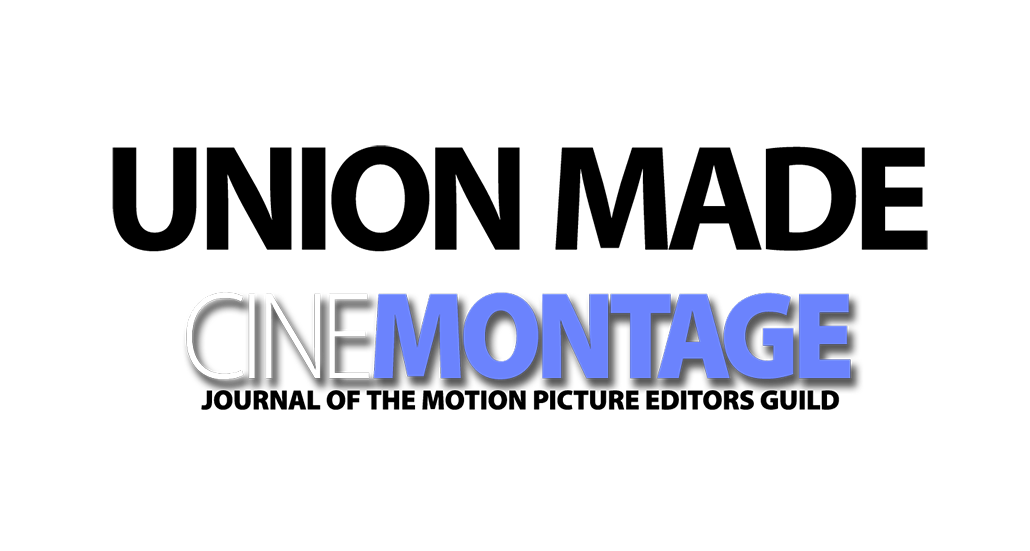by Mark Hartzell
I was raised in Beverly Hills. Before you imagine the mansion and yacht, let me restate that I was raised by my recently divorced mother and my grandparents in a small, ancient house. But yes, in Beverly Hills. My grandfather (Leon Askin) was an actor who portrayed General Burkhalter on TV’s Hogan’s Heroes. My grandmother was an artist and my mom was a shrink. This crazy combination was my jumping off point.
I was exposed to television and film production at a young age and remember being at tapings of shows in which my grandfather performed. Because of this, I always wanted to do something creative, but wasn’t sure what. English was the only class I really excelled at so I figured, why not write the next Great American Novel? At UC Riverside, I majored in creative writing with an emphasis on film studies (which was all theory). I learned nothing practical about filmmaking, but I can now use the word “diegesis” in a sentence.
After getting my BA, I entered Loyola Marymount University’s graduate screenwriting program. As a prerequisite, I had to take an editing class. I remember thinking, “This is going to be a huge waste of time,” but instead found it fascinating. Editing was like writing but with images and sound. And I got to do editorial stuff that nobody does anymore — specifically, I got to edit 35mm film from Gunsmoke on an upright Moviola.
Soon after, I learned how to use a tape-to-tape editing system and directed a number of scenes and shorts. They were well received, so much so that other students asked me to edit their projects. Concurrently, I realized that while I enjoyed writing for myself, when involving a deadline, my enthusiasm waned. My focus switched full time from writing to editing.
My last year at LMU, I got an internship with the American Cinema Editors. It was a big break for me. The internship focuses on the process, politics and etiquette of editorial — a full-immersion crash course. I spent a week each in the cutting room of an episodic, a feature and a long-form project. Highlights included onlining an episode (like cramming for finals!) and watching directors and producers interact with editors. I also got to sync some 35mm dailies — which I botched. However, I impressed enough people that I was recommended for my first job as assistant editor.
That first job led immediately to my second. However, after that I couldn’t find work anywhere!
I majored in creative writing with an emphasis on film studies [which was all theory]. I learned nothing practical about filmmaking, but I can now use the word “diegesis” in a sentence.
I did everything people said: Pound the pavement to put a face to the resume, e-mails, glad-handing… Nothing. Five months with no response from anyone, except my mother, who suggested trade school — perhaps a plumber?
My career finally got rolling again with a job on a Fox special, Train Wrecks. After 18 months on a variety of projects, I qualified to join the Editors Guild. It was tough to try and get a union job but Stephen Mark, ACE, with whom I had worked on Chicken Soup for the Soul, offered me an assisting gig on a union show. My first union job was also my first film show, my first high-definition show and my first pilot. I was incredibly nervous. I felt I needed to know everything there was to know about working with film, from telecine to HD finishing. So I started calling everyone and asking lots of questions: Frame rates? Pulldown?
The valuable lesson I learned was twofold: Never be afraid to ask questions and/or for help. On all shows, there is some reinventing of the workflow wheel — and in this instance I quickly realized that knowing enough to ask the questions made me appear more confident. I pulled off my first union gig!
I assisted for many years and worked on some amazing shows, but at a certain point, I felt I should push to become an editor. Finally, I got the opportunity on HBO’s True Blood. Michael Ruscio, ACE, was directing his second of many episodes and asked if I wanted to cut it. At first I balked, figuring that if I choked and failed it could be a career ender. But I reconsidered, as he must have thought I was capable, and I took the opportunity. Ultimately, I didn’t choke.
Work breeds work; there is a direct connection between Chicken Soup for the Soul and my getting the bump to editor on True Blood. Had I not met Stephen Mark, I wouldn’t have wound up on Deadwood. Without Deadwood, I wouldn’t have been brought to the attention of the post producer on True Blood. It is six degrees of post-production separation.
Words I live by? Be kind and respectful to everyone with whom you work — from the production assistant all the way to the executive producer — because your PA might become your EP before too long. And with every cut, everyone, including me, becomes a better editor.


